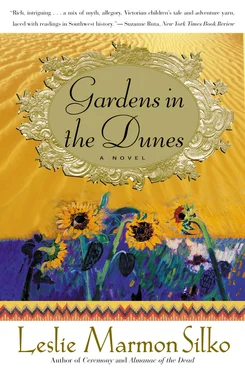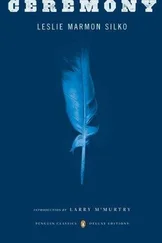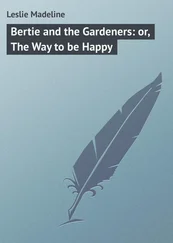“Oh it’s easily repaired,” Hattie said when she noticed Indigo’s stricken expression. “Odd how it happened. I don’t remember the train case being near the birdcage.” They were about to dock in Bristol, where they’d take the train to Bath.
Edward gathered the notes he made from his reading about citrus horticulture. He lingered over his notes on the pome-citron, as the Citrus medica was known. The largest groves were in Corsica, but the authorities there were wary of foreigners who might be agents of foreign governments seeking to cash in on the growing popularity of candied citron rind. Agents for Lowe & Company reported the best specimens of Citrus medica were to be had in the mountain villages outside Bastia.

Aunt Bronwyn insisted on meeting them in Bristol for the short train ride to Bath. She was the same Aunt Bronwyn Hattie remembered, jolly, bright blue eyes enlarged by the thick lenses of her glasses. She was anxious to get out of Bristol — too much coal smoke and dust, too much noise in the streets.
Hattie watched Indigo’s grip on the parrot’s cage tighten as she was introduced to Aunt Bronwyn, but the child seemed to relax after Aunt Bronwyn praised Rainbow’s beauty. Indigo leaned back on the wide leather seat and clutched the parrot cage tightly as the coach lurched through the port traffic. She had a feeling Aunt Bronwyn was going to be fun to visit.
From time to time she caught glimpses of the waterfront — so many tall ships, so many coaches and freight wagons in the streets. The noise and smoke and the odors of cooking food resembled those in the streets of New York City, except here the overcast sky and high thin clouds reminded Indigo of winter.
Ah, the great port city of Bristol astride the river Avon, Edward thought as he scanned the docks where workmen unloaded bales of cotton and pallets of lumber. The cab passed the wide doors of a large building where people and carts of raw wool darted in and out.
“What is it?” Hattie asked, noticing Edward’s attention to the wool market building. Aunt Bronwyn took one look and guessed immediately.
“The site of the old slave market,” Aunt Bronwyn said, watching Edward’s expression. “No great English port city was without its slave market.” The slave market in Bristol had been one point of the golden triangle of world trade. Ships sailed out of Bristol Harbor with English textiles, tin, and glass for the coast of West Africa, where the goods were traded for slaves; in the Americas the slaves were traded for cargoes of tobacco and cotton, which were transported back to Bristol, where the golden cycle repeated itself.
Hattie glanced at Edward, whose face reddened a bit.
“Of course, all the port cities of the Americas had slave markets too,” Edward added.
“And we in the Americas kept our slave markets longer,” Hattie said as she watched Indigo kneel on the seat to get a better view out the window. Indigo wanted to see the place where slaves used to be sold because Grandma Fleet told them stories about such places, like Yuma and Tucson. In the old days, twice a year, in the fall and the spring, the slave catchers brought their harvest of young Indian children to trade to the cattle ranchers and miners. The Sand Lizards preferred the old gardens because the slave hunters did not usually travel that far; she and Mama always warned the girls to be careful because the slave hunters didn’t care what the law was; they tied you to a donkey’s back and took you so far away you’d never find your way home.
“My sister and I know how to hide from the slave catchers,” Indigo said, turning away from the window. Both Hattie and Edward looked a bit shocked, but Aunt Bronwyn nodded.
“Oh Indigo! There are no slave hunters anymore!” Hattie didn’t want the child to make a habit of exaggeration to get attention or approval. Indigo’s eyes got round and her face was serious.
“I’ve seen them, Hattie,” Indigo said breathlessly. “We were on the hilltop with Grandma Fleet. Off in the distance we saw the children tied together in a line!” Indigo could tell Aunt Bronwyn believed her but Hattie and Edward did not.
As they boarded the train to Bath, Indigo thought her ears were failing her, but then she realized the people here spoke a different language. The people looked a bit different too, with light pink skin, light blue eyes, and light brown, thin hair; the damp cool air and the abundant shade of the tall trees must be the cause, Indigo decided. The people on the train stared at Indigo, but not unkindly.
The motions of the train felt quick and sharp after the days on the ship, and the air smelled of the locomotive’s coal smoke. The train left behind the noise and congestion of the waterfront. The dingy tenements at the edge of Bristol gave way to green rolling hills above the river; the sky’s color shifted from gray to green-blue. The railroad followed an embankment along the river. How lovely to drive along under the green canopy formed by the old elms and oaks along the meandering river. For a moment, off in the distance on the southern horizon, a shaft of sunlight broke through thin clouds. Indigo excitedly pointed at the sky. The sun had seldom been visible during their ocean crossing. Indigo pressed closer to the window but the sun slipped behind the clouds again.
Hattie was delighted with the beauty of the countryside; here and there between the tall trees and the shrubs — willows, bracken, brambles, and bog myrtle — little clumps of periwinkles, wild pinks, and marshmallows grew above the riverbank. All along the edge of the road foxgloves and primroses stood tall, with wild buttercups and white daisies scattered all around. She was hardly more than a child the last time she and her parents visited Aunt Bronwyn in Bath.
Aunt Bronwyn had been born in the United States, but years ago she married in England, where she remained even after her husband’s death, on the estate inherited from her English grandfather. She was regarded a bit odd by the other Abbotts, who disliked the English for their snobbery. “Nonsense!” Aunt Bronwyn liked to exclaim to enliven the discussion. For centuries, the city of Bath had been populated by a great many wealthy foreign princes and other foreigners, who came to gamble and take the waters of the healing spring, so they took no notice of Aunt Bronwyn. The local people thought her foolish because she moved into the old cloister in the orchard, too close to the river, and the structure in disrepair. Aunt Bronwyn was too busy to waste time on teas and dinners, and in Bath they left her in peace. No effort was made to invite her, though they were pleasant enough when she met them on the street or in a shop.
Hattie and her father loved his old aunt, but Hattie’s mother found Aunt Bronwyn’s eccentricities quite unnerving during their visit years before. They found her beloved Irish terriers asleep in their bed and when Mrs. Abbott tried to force them off with her umbrella, the dogs made ugly growls at her. Mrs. Abbott urged them to stay at a hotel or they would get no sleep as there were cattle lowing and dogs barking all night.
Indigo was amazed at how damp and green the air smelled in England. Water, water everywhere, it seemed — in little ponds and lakes along the river. Through the slit in the cage cover she whispered to the parrot: Aunt Bronwyn seemed very nice, just the kind of person who would not mind a parrot out of his cage. She promised to let him out as soon as they arrived.
“Welcome! Welcome!” Aunt Bronwyn exclaimed again; she was so delighted they were able to stop with her even for a short visit. Indigo shook Aunt Bronwyn’s hand but was too shy to speak until she saw the parrot’s beak reach between the bars after Aunt Bronwyn’s forefinger, then she exclaimed, “Watch out!” just in time to save Aunt Bronwyn’s finger. Indigo showed her the half-moon scar on her own finger, the mark of the hooked beak.
Читать дальше













